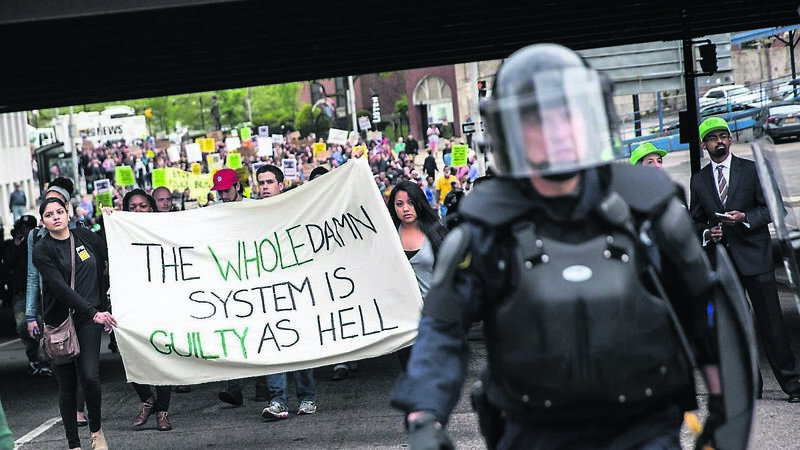Book Review: looking at who polices the police in Baltimore

BALTIMORE, MD - MAY 01: Protesters march through the streets in support of Maryland state attorney Marilyn Mosby's announcement that charges would be filed against Baltimore police officers in the death of Freddie Gray on May 1, 2015 in Baltimore, Maryland. Gray died in police custody after being arrested on April 12, 2015. (Photo by Andrew Burton/Getty Images)
- We Own This City
- Justin Fenton
- Faber, €21




